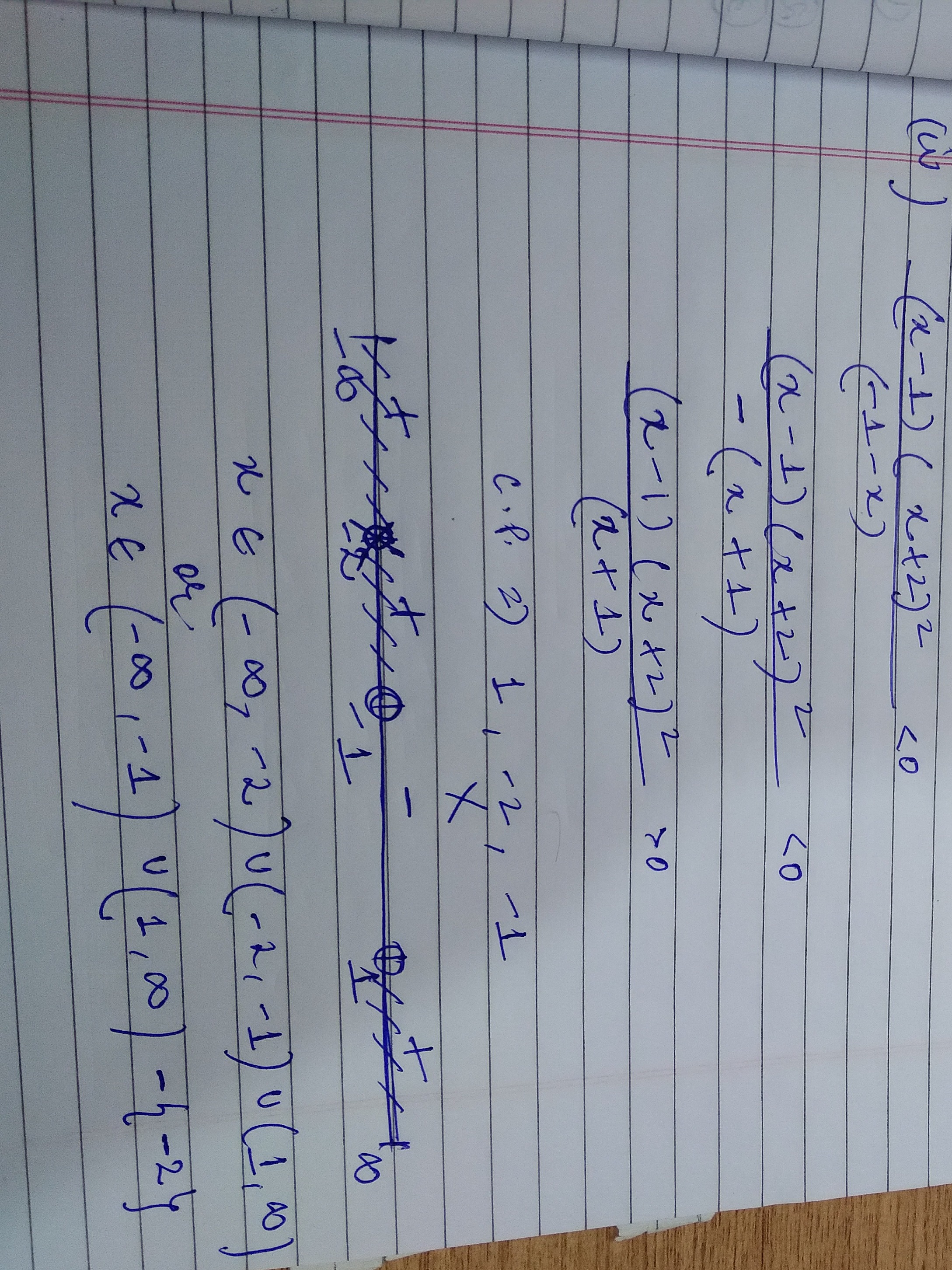Question
Question: (w) $\frac{(x-1)(x+2)^2}{(1-x)}<0$...
(w) (1−x)(x−1)(x+2)2<0

Answer
x∈(−∞,−2)∪(−2,1)∪(1,∞)
Explanation
Solution
The given inequality is (1−x)(x−1)(x+2)2<0.
Rewrite the denominator: (1−x)=−(x−1). The inequality becomes: −(x−1)(x−1)(x+2)2<0.
For x=1, we can simplify −(x−1)(x−1)=−1. The inequality simplifies to: −1⋅(x+2)2<0. This is equivalent to: −(x+2)2<0.
Multiply by −1 and reverse the inequality sign: (x+2)2>0.
This inequality is true for all real numbers x except when (x+2)2=0, which occurs at x=−2. So, the solution is x=−2.
Considering the original denominator (1−x), we also have the restriction x=1.
Combining these conditions, the solution set is all real numbers except −2 and 1. Therefore, x∈(−∞,−2)∪(−2,1)∪(1,∞).
